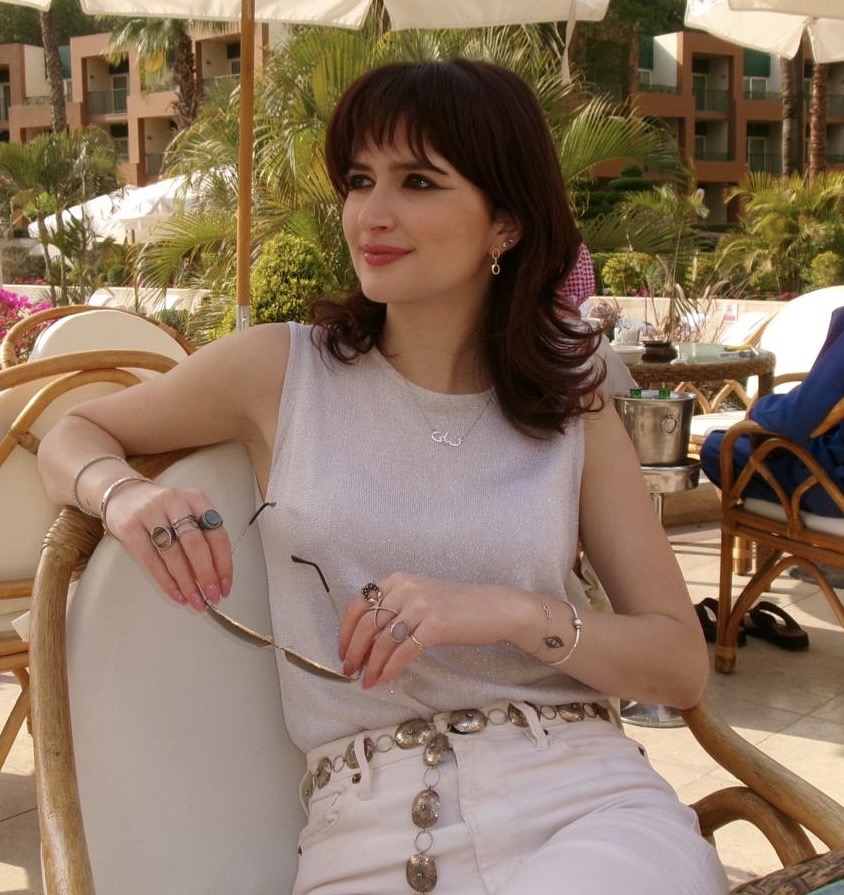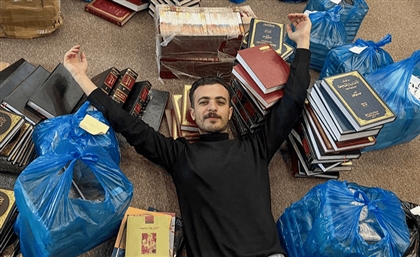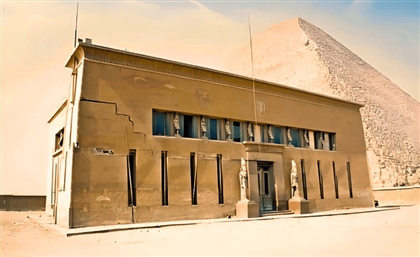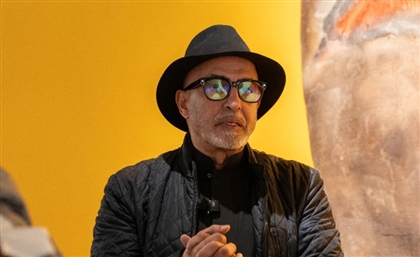PalPsych Trains Volunteers to Support Gazan Refugees in Cairo
Amy Estrada started PalPsych when she saw a gap in mental health services for Gazan refugees in Cairo. Since 2024, she has trained over 70 volunteers, many without a background in psychology.
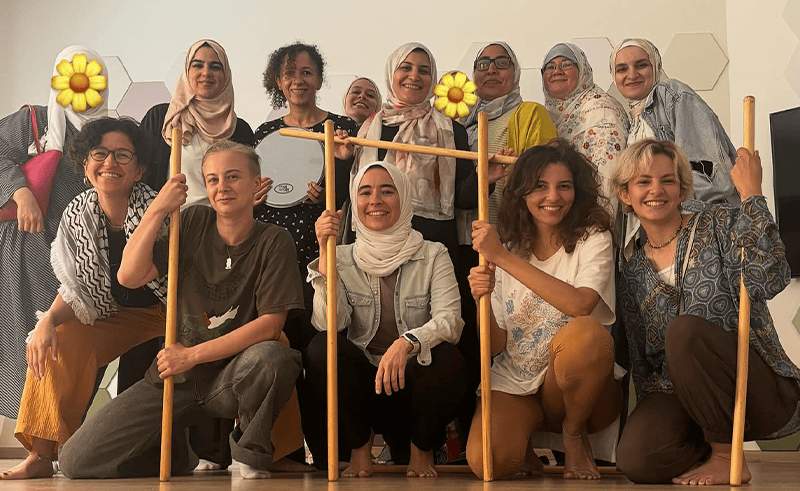
“But who is providing mental health support to the adults?” psychotherapist Amy Estrada asked the organizations supporting Palestinian refugees in Cairo a few months after October 7th. Initiatives existed to address children’s needs, but, as far as she knew, no one was focused on the adults. Thus began PalPsych Line in May 2024, a non-profit organization that provides free counseling services to Gazan refugees displaced in Cairo. Through the leadership of Estrada, PalPsych Line trains volunteers to work with families and individuals without requiring any experience in clinical psychology. Estrada does not have roots in the Arab World. Born and raised in Southern California, she converted to Islam over 20 years ago and made the move to Cairo in 2017. She did not feel aligned with American society as a Muslim woman, and was pushed away by the dominant pro-Israel culture. Estrada has been working in mental health as a licensed psychotherapist for two decades. She hoped to develop a counseling career in Egypt but her lack of Arabic fluency was a barrier. After the genocide began, Estrada came up with the idea of training and supervising fluent Arabic speakers to bridge her language gap and address the urgent needs of Palestinian refugees. As of 2024, there are an estimated 100,000 Gazans living in Egypt, according to the Palestinian Authority’s embassy. They do not have official refugee status in the country, partly because the United Nations Relief and Works Agency for Palestine Refugees (UNRWA) does not operate in Egypt. Therefore, they cannot access state services, enroll in schools, or work legally in the country, leaving tens of thousands of people to rely on NGOs like PalPsych Line for basic needs. “Still, many families are not getting all their needs met,” Estrada said. “There is a desperate need for institutionalised, coordinated and structured physical support on the ground,” Amal said, who has been volunteering with PalPsych officially since May 2025. With experience working with refugees for decades, she supports Palestinians both in Cairo and in Gaza by phone. She added that those who need support are often overwhelmed with other pressing issues like earning a living, caring for their family, or managing their health. To find volunteers like Amal, Estrada cast her net wide, reaching out to her community in Egypt, people on Facebook, and anyone she could think of who might be interested in volunteering. “And it built up,” she said. “People started to pass the word around, and I got my first batch to train.” The current group of about 30 is predominantly female—most are Egyptian, with a few foreigners who live here permanently. Maximum, they have three cases at any given time. Sessions are either over the phone or in-person, with volunteers traveling to meet individuals where they are, as transportation can be a costly barrier. While some PalPsych volunteers do have a background in counseling, Estrada does not require any experience. She trains volunteers through a three-week course using solution-focused counseling—a structured, goal-oriented kind of therapy that does not require a psychology background. Volunteers practice through in-person role play scenarios and cover topics like grief, trauma, and risk screening. In a little over a year, Estrada has trained over 70 volunteers in a total of six batches. She is hoping to conduct a seventh training session soon. “We got our first case before the training even finished on the first batch—a suicide case. It was a teen who was feeling desperate, saying they wanted to die. The family didn’t know who else to turn to, so they contacted Network for Palestine who reached out to us," she said about another Cairo-based NGO that serves Gazan families in Egypt. They got in contact with this individual the same day. “There’s not a lot of wait time when somebody wants or needs our services,” Estrada said. Since then, she estimates that they have completed close to 100 cases, 80 percent of which are individual cases, but PalPsych cares for families as well—sometimes multiple generations living in the same home. “Most of the cases we get are not about trauma at all,” Estrada explained. Volunteers more often tackle family and financial issues, like, for example, the stress single moms are facing caring for their children without their husbands. “Most of the things we deal with on the caseload are practical things all of us deal with. The trauma of what they experienced coming out of Gaza comes up at various points, but it’s definitely not the focus.” Before Menna started volunteering at PalPsych, she thought support was mostly about offering comfort. After five cases, she sees support equally as holding space for grief and empowering people with small, practical tools to help them cope day by day. “PalPsych is not just about therapy sessions, it’s about solidarity, resilience and human connection,” she said. “People we serve are not defined by trauma—they are individuals with dignity, hopes, and remarkable resilience. Our role is to honor that and accompany them in their journey.” PalPsych began offering support for the case managers after Estrada noticed volunteers struggling with burnout from the intensity of the work and difficulty setting boundaries with the clients. “I always tell the team, it’s okay to take a break, it’s okay to quit,” she said. “There’s an open-door policy.” “For us to not burn out we need to process everything we go through as well,” Zara said, a Swedish volunteer going on 10 months with PalPsych. She mentioned a young girl she met recently whose brother, cousins, and entire extended family was killed in Gaza. “This work represents a way for me to show up for the Palestinian people,” Zara said, adding that when there are so few direct channels of support, “this is the least we can do.” Volunteer Wafaa agreed. She spoke about a case that stuck with her—a family of 13 children who had combined from three separate families when two sets of parents were killed. The orphaned children wore the scars of Israeli bombardments on their young bodies. “We are in a long-lasting war with evil itself,” she said. “PalPsych reaches people in need, maybe faster than some official organisations. This is how solidarity should look in times of crisis.” She left PalPsych after about one year. “The longer this goes on, the easier it is for people to forget,” Estrada said as we enter the third year of a genocide. “I don’t think Egypt forgets the way America forgets. But it’s always good to remind people: there are still operations happening, there are still needs that need to be met, and we still need to put effort into supporting however we can.”
- Previous Article Seven Global Palestinian Cafés Carrying Home in Every Bite
- Next Article MENA Startup Funding Reaches $3.5 Billion in September 2025







